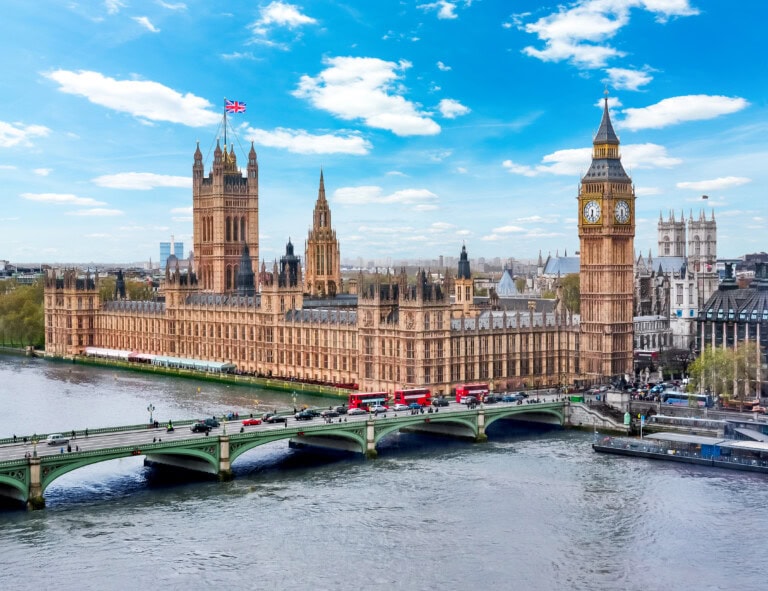UKGBC responds to the Climate Change Committee's 2025 Progress Report

The Climate Change Committee (CCC) has published their annual report to Parliament on the UK’s progress towards achieving net zero emissions – this government’s second since taking office. Despite praise for planning reform which speeds up renewables and simplifies heat pump installation, four of the ten priority recommendations are directly related to the built environment, reinforcing that urgent measures need to be taken to accelerate decarbonisation in our sector.
Crucial urgent action includes publication of the long-awaited Future Homes Standard and Warm Homes Plan – both of which are expected in the Autumn. We are locking in emissions and future retrofit costs, as 71% of new homes still have fossil fuel boilers. The Future Homes and Building Standards will be essential to stop connecting more homes to the gas grid and supporting renewable roll out with solar requirements – a ‘no-brainer’ for long-term costs and emissions saving.
The focus on retrofit in the report remains overwhelmingly on heat decarbonisation, with limited details on measures like fabric-upgrades and insulation. The Warm Homes Plan will be essential for providing confidence and certainty to scale heat pump deployment in existing buildings. The CCC acknowledges that existing schemes (such as the Boiler Upgrade Scheme) only provides a fraction of the market need, which is why we also want to see nudges like the Warm Homes Stamp Duty incentive to encourage consumers to invest in home upgrades.
Across both new build and retrofit, the CCC maintains support for supply chain investment and training, recognising that getting the workforce and skills piece right remains a critical enabler for delivery.
The priority recommendation in the report is once again that we need to make electricity cheaper, with no government progress from last year. Rebalancing electricity and gas prices is an essential part of building decarbonisation, making heat affordable so that people want to move to clean heat sources. The price imbalance risks undermining all electrification efforts, as well as strategies for heat pumps and industrial decarbonisation. We have been working with E3G to develop clear guidance for levy rebalancing.
The CCC has found that only 38% of necessary building sector emissions cuts have credible plans, and 14% have “insufficient plans”, mainly around the scaling of heat pumps. In order to achieve the next 50% of emissions reductions (the hardest piece of the puzzle), we need stronger regulations, more long-term strategies, and reforms which make sustainability an easy choice.
Simon McWhirter, Chief Executive at UKGBC, said:
It’s encouraging to see that the UK has now halved its emissions in this year’s Climate Change Committee progress report, but let’s be clear: we’re still far from where we need to be. With emissions from buildings needing to fall dramatically by 2030, small steps must quickly turn into a nationwide sprint.
This is the new government’s second progress report, and we welcome early signs of progress across key government schemes and policy decisions for clean heat and energy.
But getting halfway means we still have a long way to go – and it only gets tougher from here. We now need bold action to match the ambition the industry has already shown – from rapidly scaling home retrofit and heat pump deployment via a coherent and wide-ranging national plan, to locking in net zero standards for all new buildings. We urgently need to see joined-up, national strategies to drive decarbonisation across all parts of our built environment.
The opportunity is still there to create warmer homes, lower bills, more resilient and healthy communities, and drive skilled green jobs. But it requires investment, long-term regulation, and sustained political bravery.
UKGBC and our members are ready to work with government to help turn this progress into real transformation – to make our homes, workplaces, and public buildings fit for the future, and ensure the next 50% of emissions reductions are delivered at pace and scale, in partnership with industry, community, and government.”
Related
UKGBC Trends Report signals growing focus on resilience across the built environment

UKGBC responds to OFGEM’s energy price cap rise

UKGBC responds to government’s consultation to reform EPCs

Politics is once again getting in the way of vital progress on climate change


